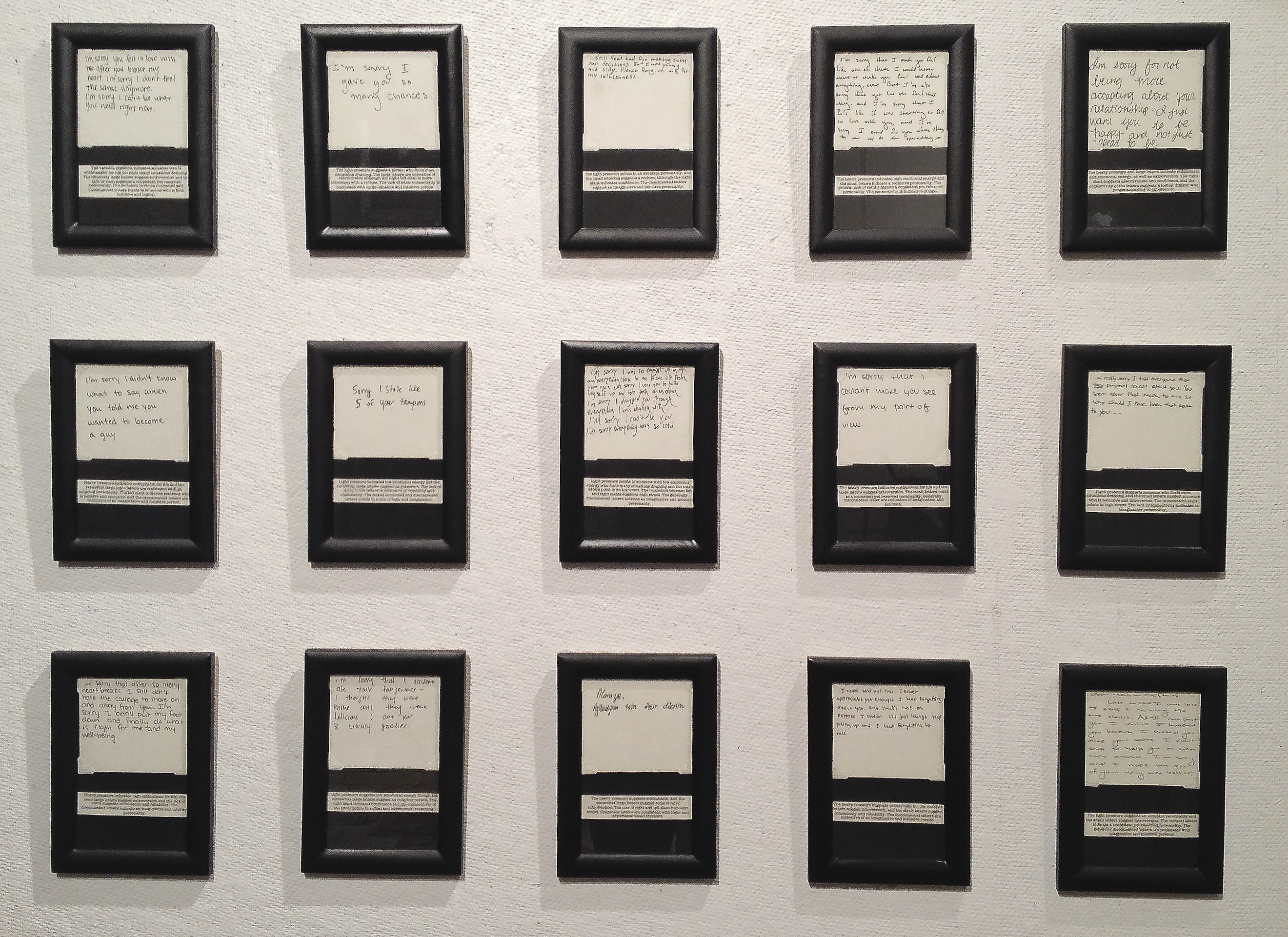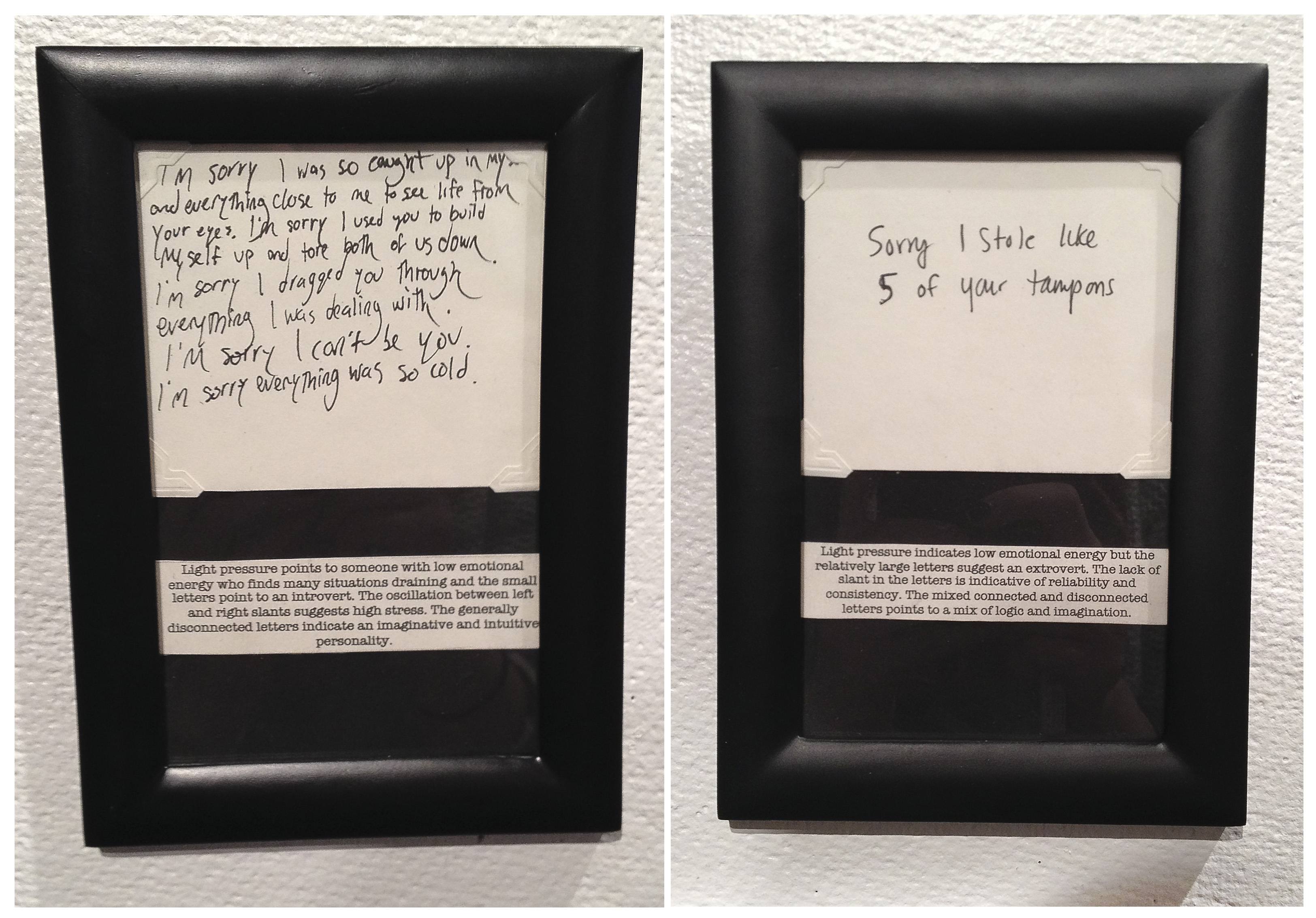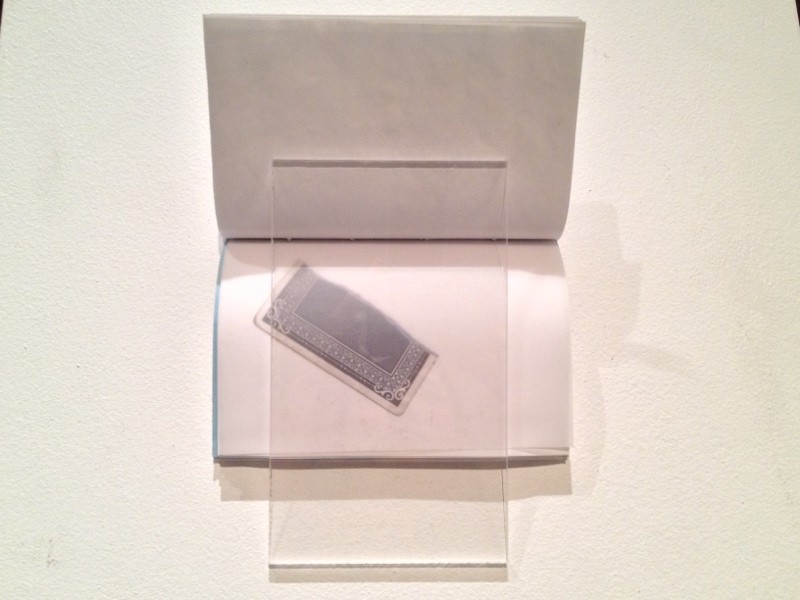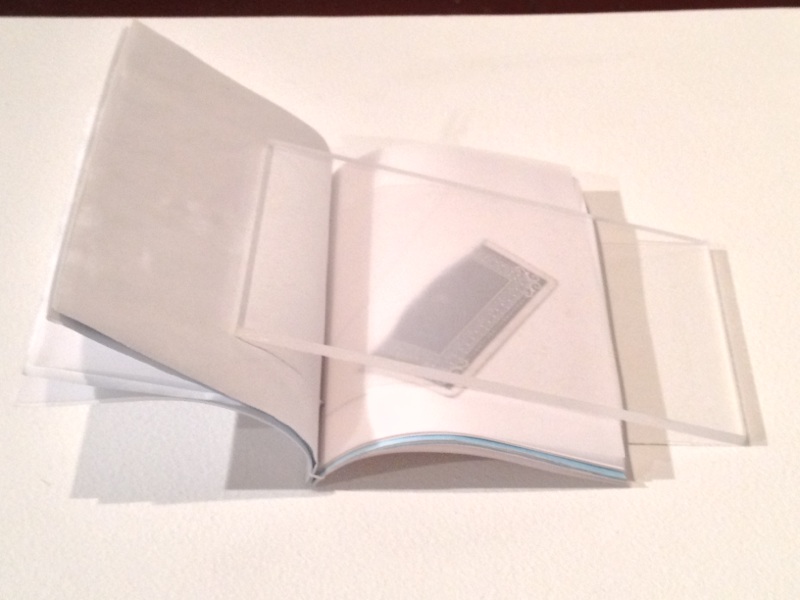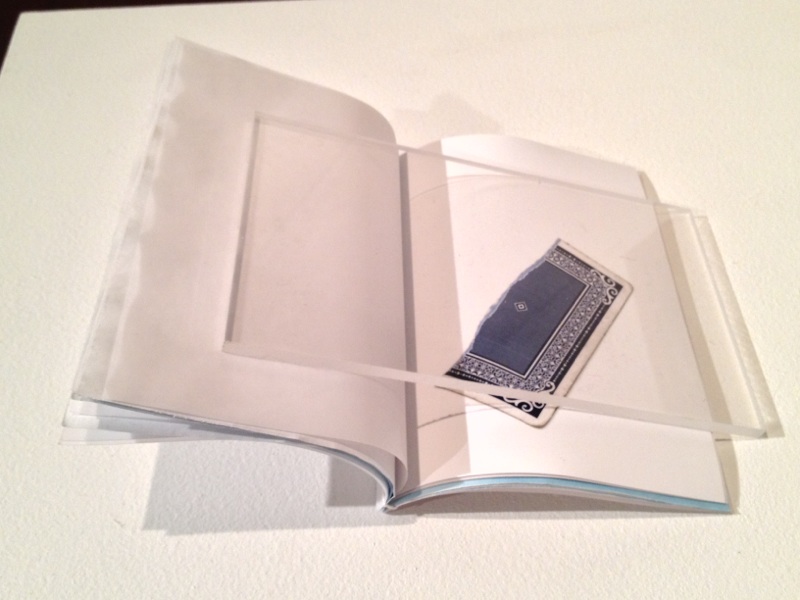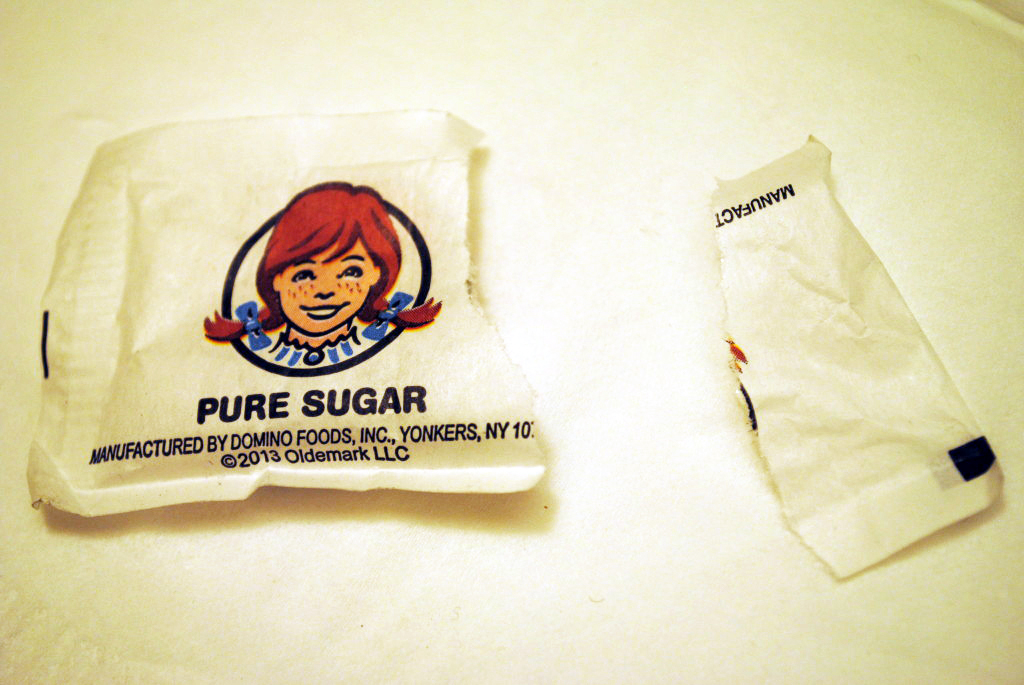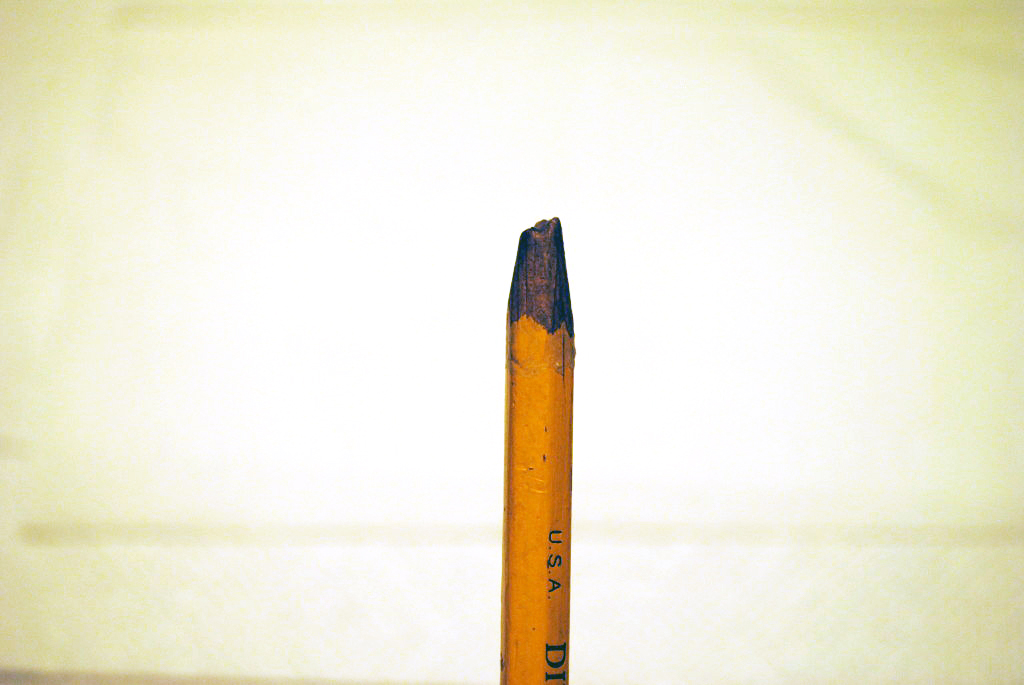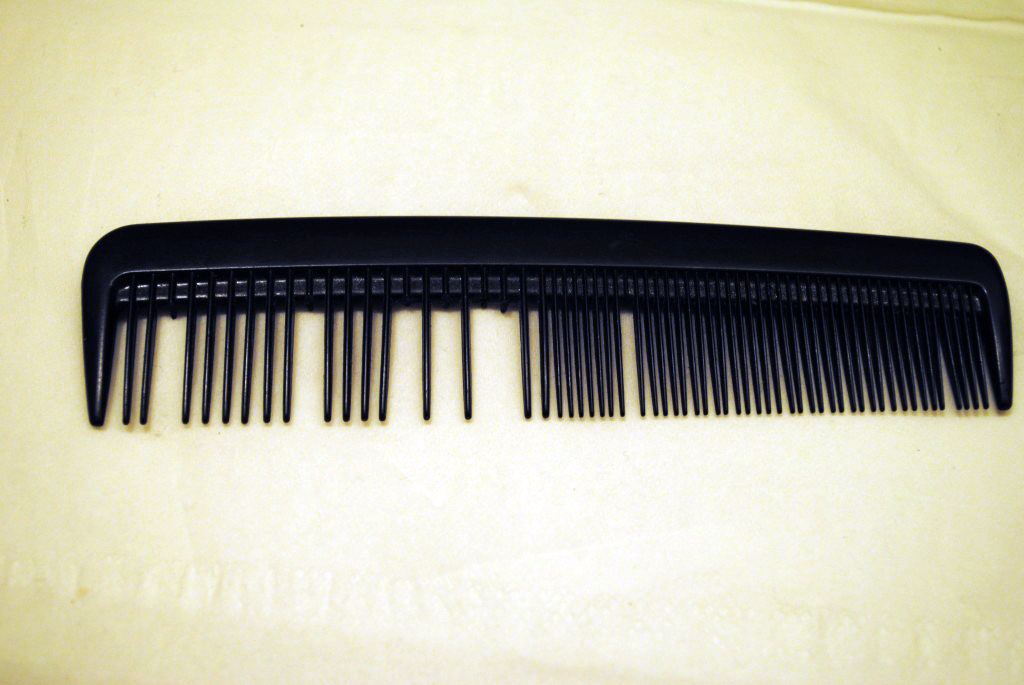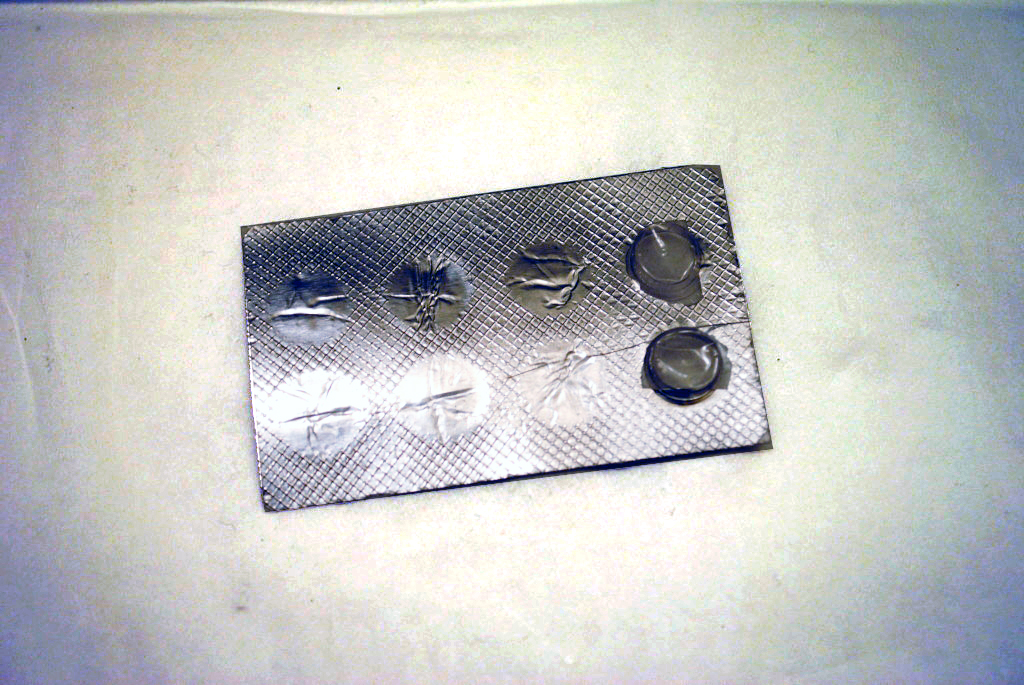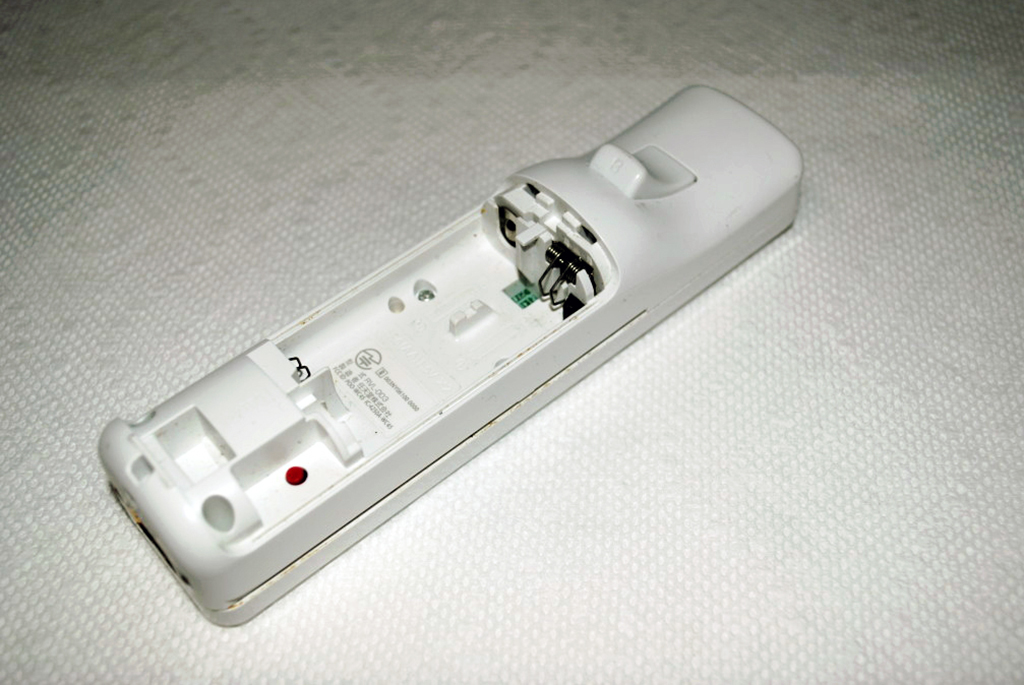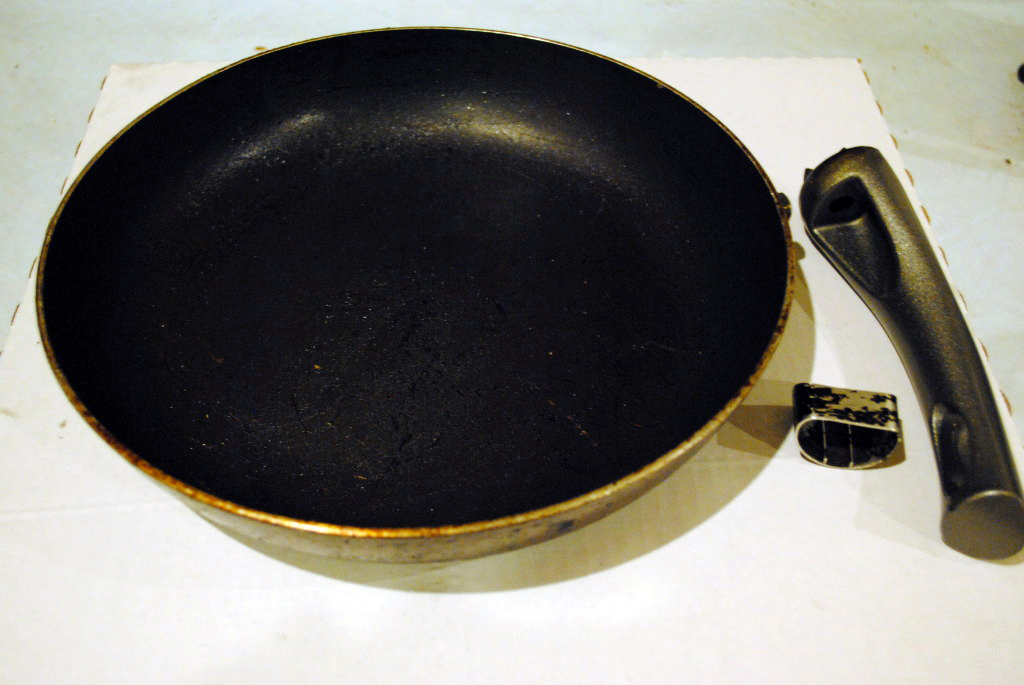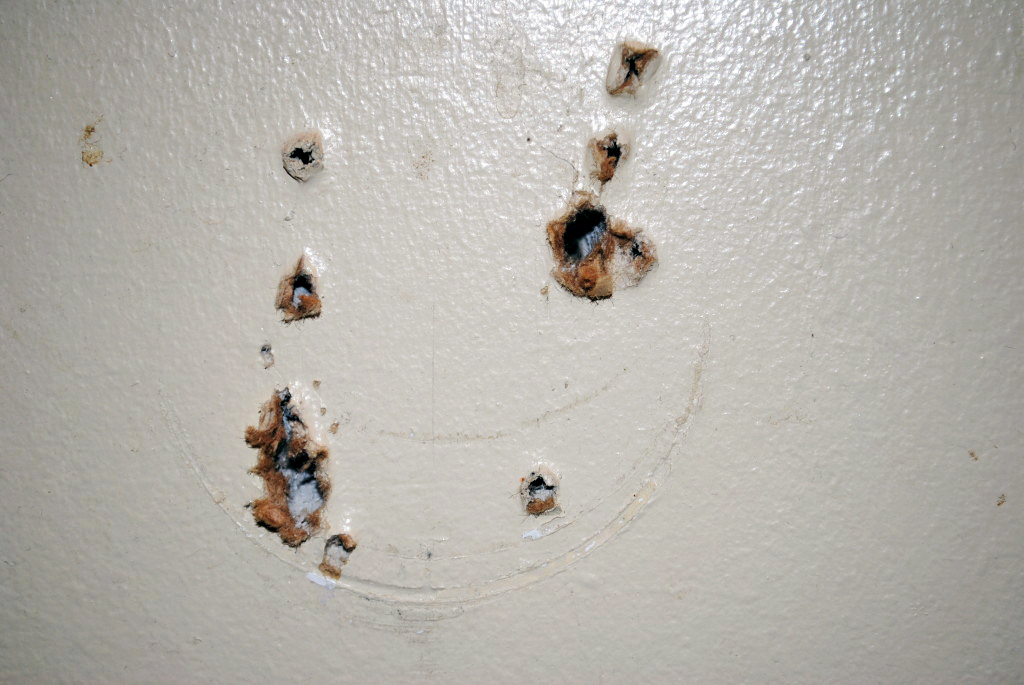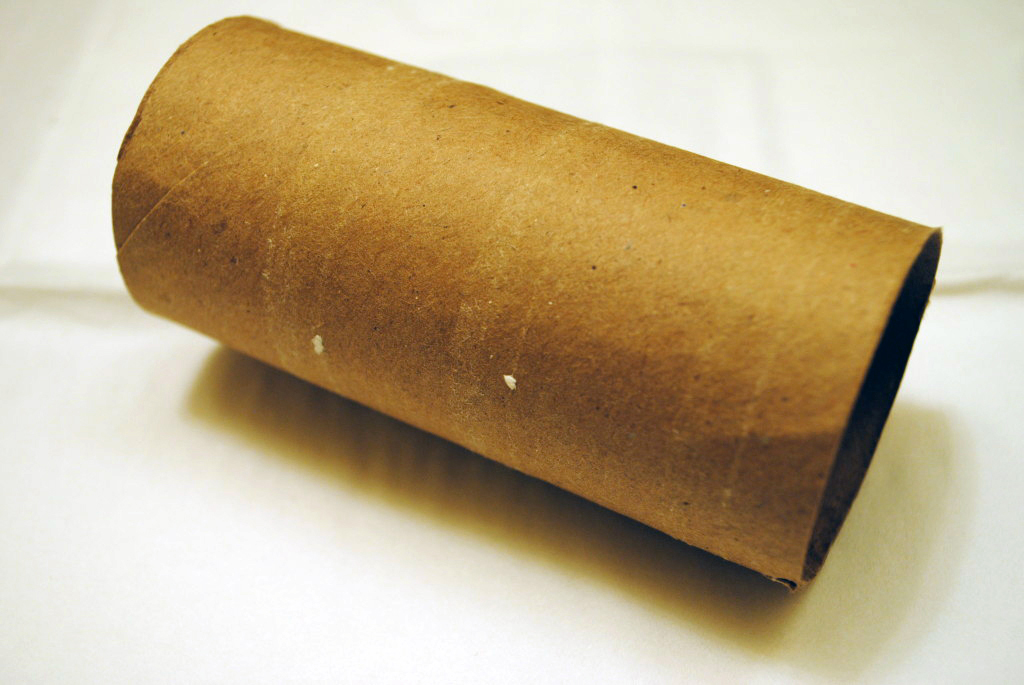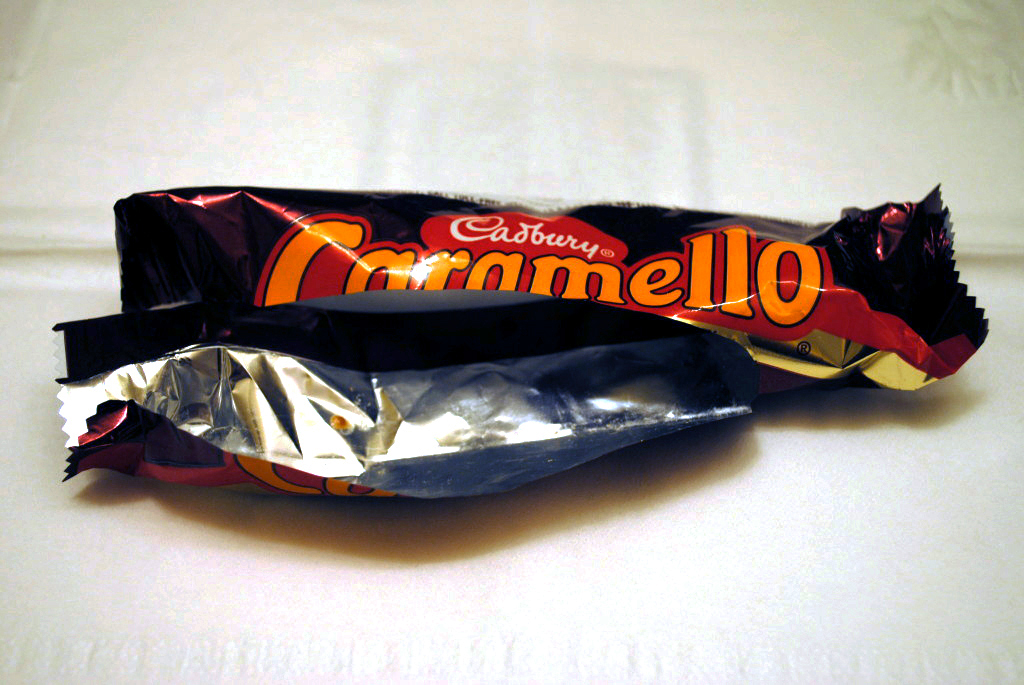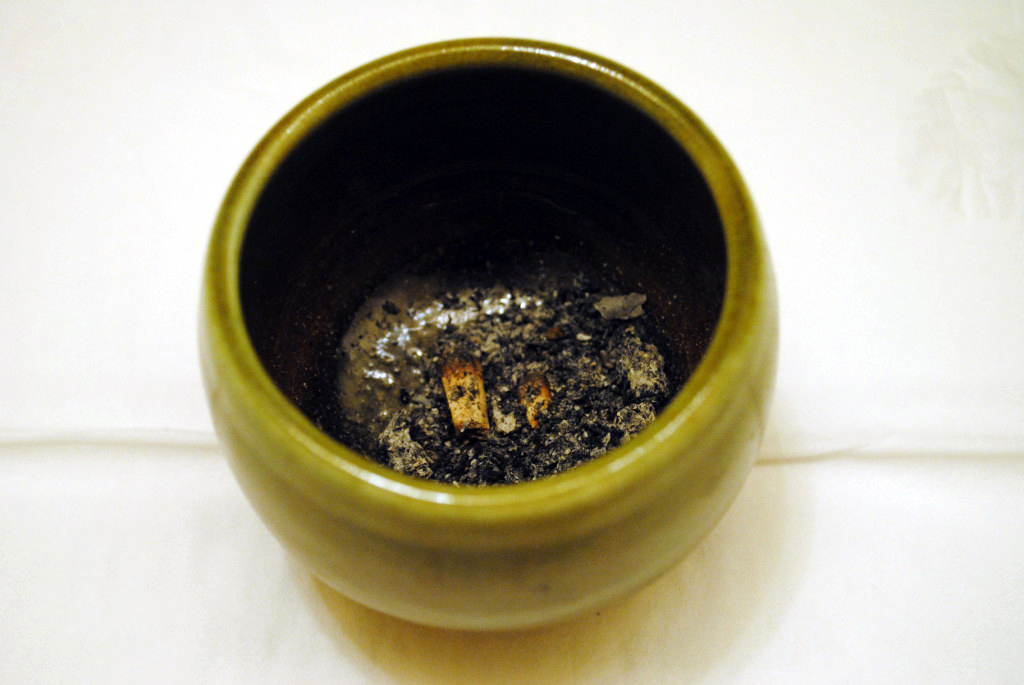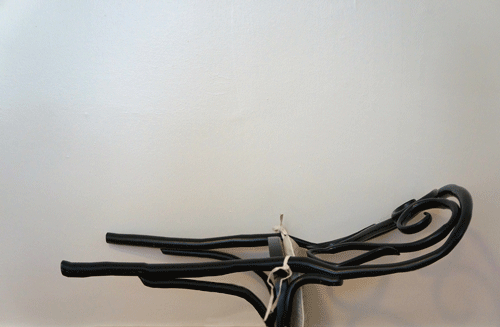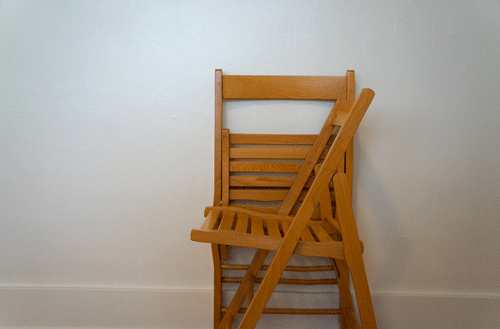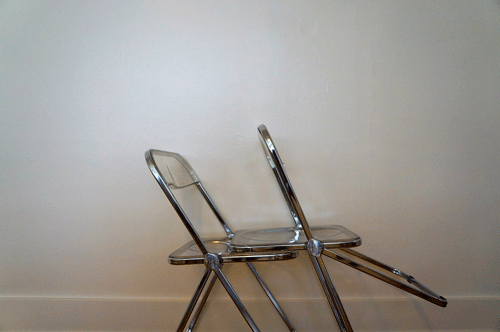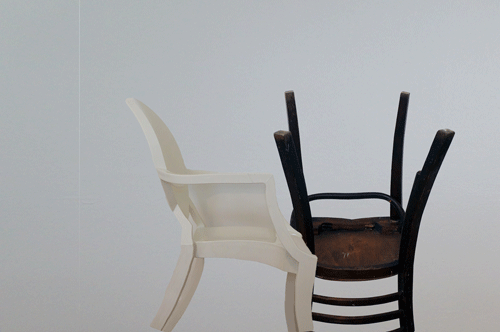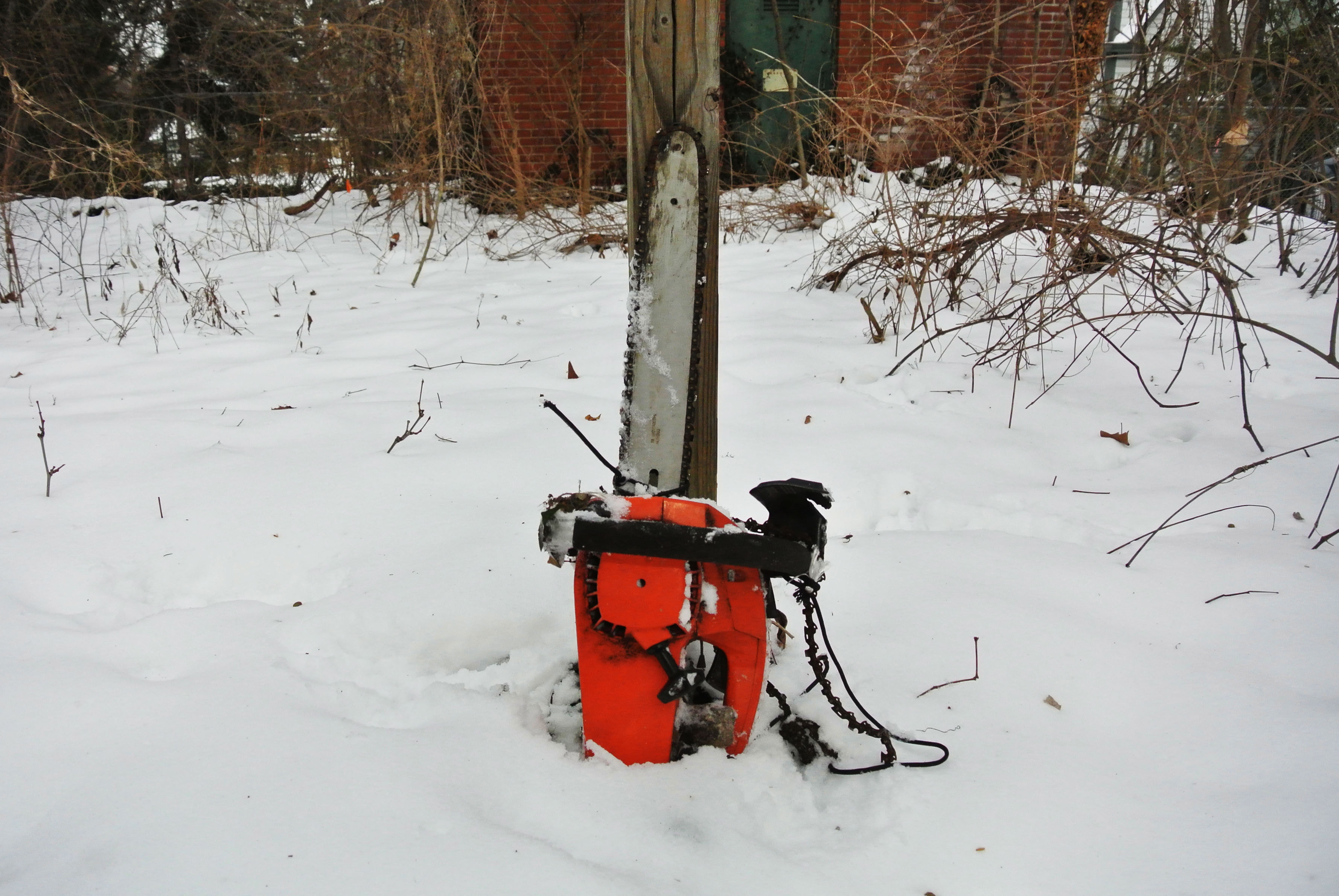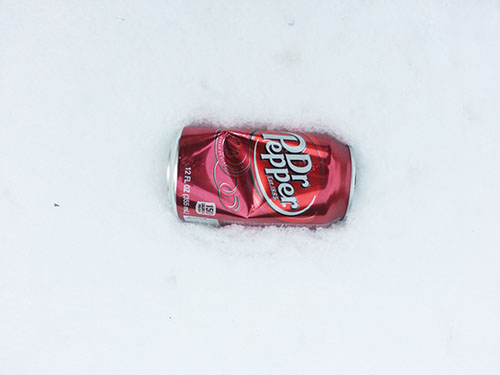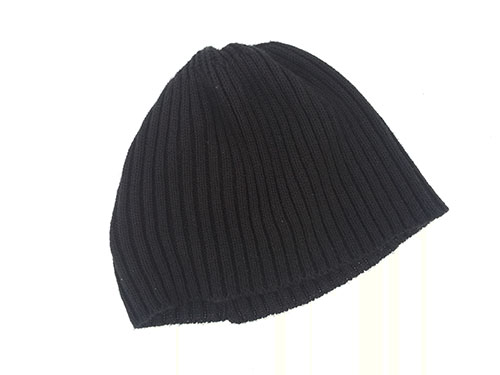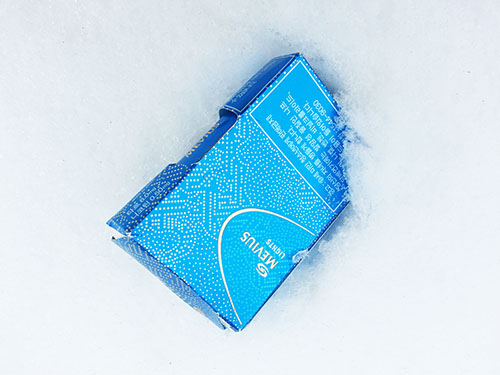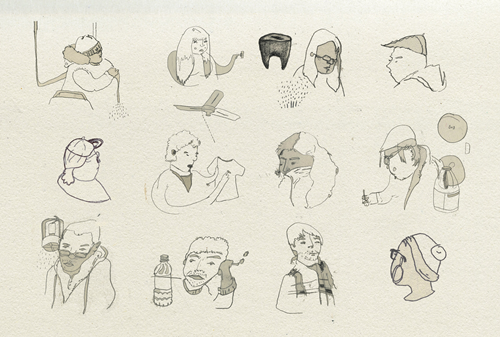This hand-bound book collected images that referenced objects from everyday life, like a deck of cards or a hair tie. The images were abstracted or obscured by an opaque cover sheet. My intention was to add an element of intrigue to personal, commonplace objects.
“New and Improved” by Maryyann Landlord (2014)
My collection plays with the recognition of the ridiculous advancement in biological engineering and how people mutate organisms often for entertainment. Some of the items I found and recreated seemed like they could have been extracted from an alchemy or witchcraft book. So I constructed my piece into a molecular form, having each object as an important makeup for this new molecule. Each little item has a description and instructions on how much to mix. The bottom cup is empty because we are still searching how to combine all these creations and inventions into something catastrophic.
“Collected Absences” by Sarah (2014)
I am fascinated by the entire life cycle of objects, including the part of the object’s history that continues after its use. I collected objects that were broken or missing pieces. These details would otherwise render the objects useless or undesirable. I searched for some connection to the object’s larger history or to the human relationship with the object.
Collection- “8 Legs/ Come Sit” (2014)
“Straight Guy Humping Pillow”
GIF Image
2014
“Incredibly passionate real sex scene”
GIF Image
2014
“Hot lesbians get it on in disapproving moms house”
GIF Image
2014
“Naughty blond babysitter gets fucked hard from behind”
GIF Image
2014
“College girl takes her first black cock”
GIF Image
2014
“Collection” by Nicholas Sardo (2014)
Collections are most often precious; perfectly arranged china, priceless dolls in a dark wood cabinet, etc. These kinds of things are what comes to mind for me when I hear “collection”. For most, the reason for collecting is because of the value of the items. For this project then, I decided to go the opposite way. I wanted to make a collection of objects that interested me visually, but held no significant value on their own. I was also interested in the idea of narrative, seeing how placing a couple incongruous objects in an otherwise similar group could suggest a story.
See the presentation here: https://docs.google.com/presentation/d/1RUDevy0mhg1Qw0W7oI25E2l72Sp6YvULo9xew9pEpQc/edit?usp=sharing
“10 Systems: Part 2” by Sarah (2014)
The system I chose to target for 24 hours was Education. In Part 1, I determined that one of the outputs of the Education system is ‘Demonstrated Learning.’ ‘Demonstrated Learning,’ I determined, usually comes in the forms of essay papers, artistic works, or grades on exams. I selected ‘Demonstrated Learning’ as a Leverage point, and concluded that I could disrupt this system by producing nothing, showing no evidence of learning.
For 24 hours, I thought about various ways to complete this assignment and break systems of my daily life routines. In the end, I attempted no new behaviors and produced nothing more than this blog post. By making no changes to my daily routine, I did not complete the assignment for Concept III: Systems and Processes.
“10 Systems: Part II” by Sam Ticknor (2014)
These drawings are the evidence of an experiment. ‘Spending Free Time’ and ‘Observing Others’ were the primary systems affected by this work.
Instead of spending my free time on Facebook, I sketched the people around me.
Instead of observing others via Facebook, I took a closer look at how people were interacting in the physical world.
“10 Systems: Part I” by Sam Ticknor (2014)
- Spending Free Time
Input: Free time/boredom
Procedure: Kill time on internet/Observe world around me through computer
Output: Information I’ve gathered from my time on the web (most often, nothing relevant)
Feedback: Is the information obtained helpful to me
Broken: I blocked facebook for a day. With the time I normally spend on facebook, I was observed and sketched non-virtual people around me. - Artistic Expression
Input: Desire to make some prints
Procedure: Gather inks, generate content, screen print protocol
Output: Prints/Editions
Feedback: Am I pleased with the product based on the amount of work I put in
Broken: I decided to try a method of printing that was entirely new to me, CMYK screen printing. Wasn’t entirely pleased with product, but am looking forward to making more CMYK prints in the future. - Grooming
Input: Hair state in the morning
Procedure: If hair is manageable, leave it down, else put it up
Output: How I wear my hair for that day
Feedback: Does the style I chose positively affect my day
Broken: Instead of letting my hair decide how it would be worn, I decided the night before, and followed through with my plans - Pupil Life
Input: Prompt for class assignment
Procedure: Generate ideas -> generate work -> submit for critique
Output: Work to be critiqued
Feedback: Literal feedback at critique & what I learned about my artistic process
Broken: I am weary of creating work for critique. For the first time in a while, I disregarded my assignments and made some work for myself, a couple stuffed animals. - Stress Relief
Input: Stress
Procedure: ‘stress-relievers’, sleep, attempting to ignore stress
Output: More stress
Feedback: Are my stressful responsibilities resolved? Due to my poor stress management, no.
Broken: I dropped a class which will allow me to spend more time on other responsibilities. - Family
Input: Desire to remain close to family
Procedure: Text/call family alerting them I want to skype. We begin to skype but when I hear that friends arrive outside of the room, make an excuse to end call and go hang out.
Output: Guilt, less close with family
Feedback: Am I happy with my relationships with my family.
Broken: This weekend, I set aside an hour and a half to skye with my parents. I made sure that I did not make some excuse to leave the conversation early. - Capital
Input: Need for funds
Procedure: Work at the Miller Gallery
Output: Money
Feedback: Enough funding? Do I feel OK about the way that I’ve made money?
Broken: I feel like a lazy individual at the Miller Gallery. So, I took an extra shift at the Children’s Museum this weekend. Next, I want to start selling prints/sewing works - Learning
Input: Homework assignment
Procedure: Wait until the last minute, don’t attend lecture, scramble to finish homework
Output: Mediocre homework assignment turned in
Feedback: Grade
Broken: Took some more initiative in a group project, started early - Collecting
Input: Everything
Procedure: Hoard it
Output: Messy room, too much stuff to handle
Feedback: Can I even walk through my room anymore?
Broken: Cleaned room, put a lot of things in a bag to bring to Makeshop - Sharing Space
Input: Roommate’s mood
Procedure: If stressed, avoid
Output: Resentment
Feedback: # of times we have a good time together vs. # of times we have a bad time
Broken: Instead of avoiding her when she was stressed about a homework assignment, I helped her complete it.
